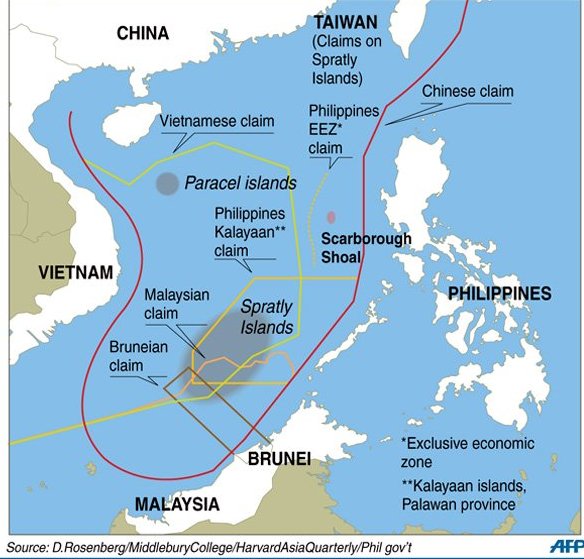Headline
PH presses on with filing of case, amidst threats from China
The Philippine government will not be bullied. This message comes across loud and clear, as officials yesterday announced the decision to pursue the case made with the United Nations challenging Beijing’s claim to most of the South China Sea, including areas deemed part of Philippine territory. This decision was made amidst threats of sanctions from China, should the case be continued.
All signals are go for the memorandum or formal pleading to be filed, as scheduled, by the Philippines on Sunday (Manila time.) This would enable the UN to study Manila’s argument that the Chinese claim covers parts of Filipino territory.
Abigail Valte, deputy spokesperson to President Aquino, said the government would pursue the case despite official Chinese warnings of a “fallout in bilateral relations;” as threatened by China’s foreign ministry spokesperson Hong Lei on Wednesday.
“China will never accept nor participate in the international arbitration unilaterally initiated and pushed by the Philippines, and China’s position has a solid basis in international law,” Hong said at a news conference in Beijing.
“We hope that the Philippine side … returns to the right track of resolving the dispute through negotiation and consultation as soon as possible, (and) stops going any further down the wrong track so as to avoid further damage to bilateral relations,” he added.
Small fish, big sea
Valte told reporters that on the side of the Philippine government, “all factors have been taken into consideration when the discussions were being held on the matter of the arbitration.” Valte told reporters.
China has laid claim to a majority of the strategically crucial body of water, along with several islets and reefs bordering major sea lanes. Aside from their strategic significance, these islets and reefs are reputedly on top of rich oil and gas reserves.
The Philippines – the small fish in the big, disputed sea – has been locked in a tense standoff with its much larger neighbor; forcing it seek UN arbitration in January 2013 to settle the dispute. China, however, rejected the move for arbitration.
I claim, you claim, we all claim
Manila refers to the areas it claims as parts of the West Philippine Sea, whereas China refers to it as the South China Sea.
Philippine authorities assert that Chinese claims to areas of the South China Sea, its seabed include, cover areas which stretch up to 1,611 kilometers from the nearest Chinese coast, and are thus illegal under the 1982 UN Convention on the Law of the Sea; a treaty signed by both China and the Philippines.
Unanswered allegations
The case was originally filed by the Philippines with the UN tribunal in 2013, with China refusing to answer the allegations. In August of the same year, the tribunal instructed the Philippines to submit a memorandum laying out the merits of its case.
“Upon filing, necessarily the other side will have to receive copies of the memorial, but I will have to refer you to the (Department of Foreign Affairs) on what will happen next or what won’t happen next,” Valte explained.
Valte did say, however, that if the UN body were to issue a decision favorable to Manila, it would be “additional weight for the Philippine position.”
“That is a tribunal that is empowered really to pass judgment on these things based on international law, which is upheld by most countries that subscribe to it,” she added.
























